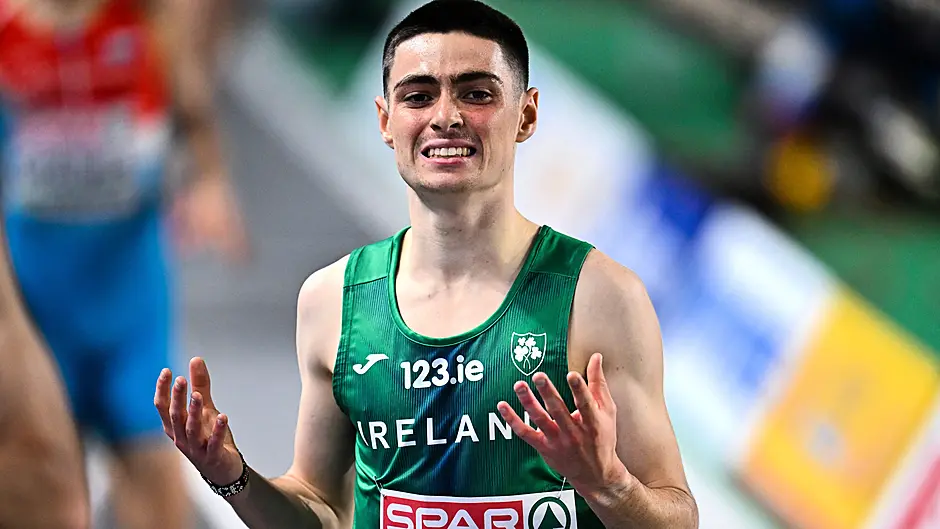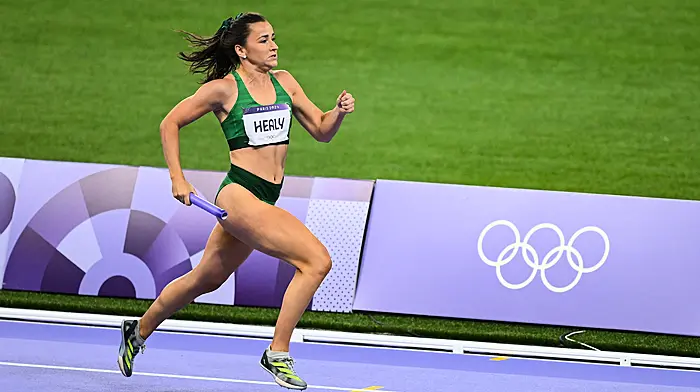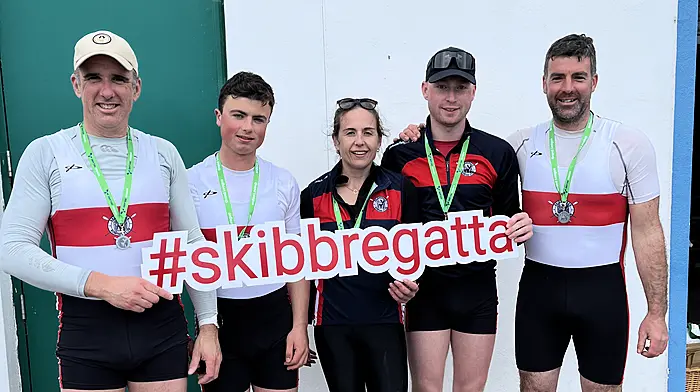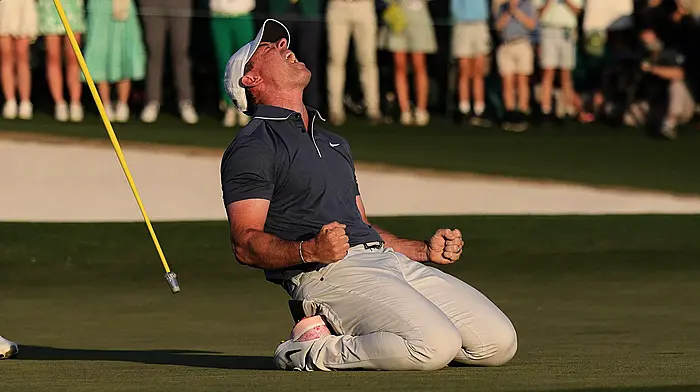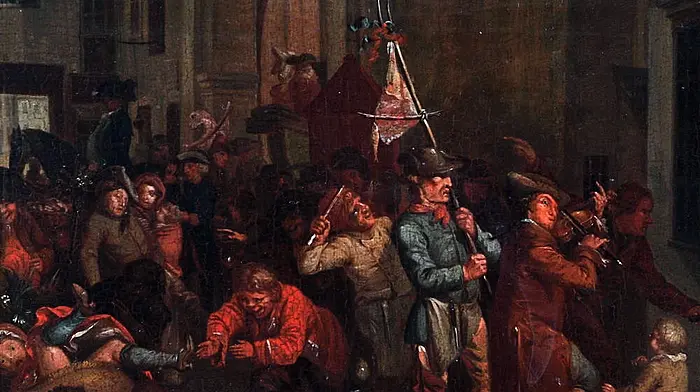SO, SO close, but still so far away – Darragh McElhinney missed out on a sensational medal at the European Athletics Indoor Championships by less than seven tenths of a second.
Little wonder the Glengarriff athlete was gutted immediately after the men’s 3000m final in Istanbul.
Fourth place hurts. It stings. So close, but just not close enough.
In his first major indoor track final, and coming off the back of a mature semi-final performance, Darragh produced the goods on the big stage: he ran a PB of 7:44.72 to finish fourth, just off bronze medallist Elzan Bibic of Serbia.
If there were another 20 metres, Darragh would have snatched a brilliant bronze.
If.
‘The initial pain and hurt of being so close is still there, to be honest,’ the 22-year-old West Cork athlete told The Star Sport Podcast.
‘It always will be in a way, it will always be somewhat of a missed opportunity.
‘When it sank in, it was painful.
‘The race itself went really well. I ran both races well. The final was one of my best-ever performances, in terms of execution and the stats.
‘In a sense it was my best run ever, but it hurts more than any run ever.
‘It is a tough one to analyse and to process.’
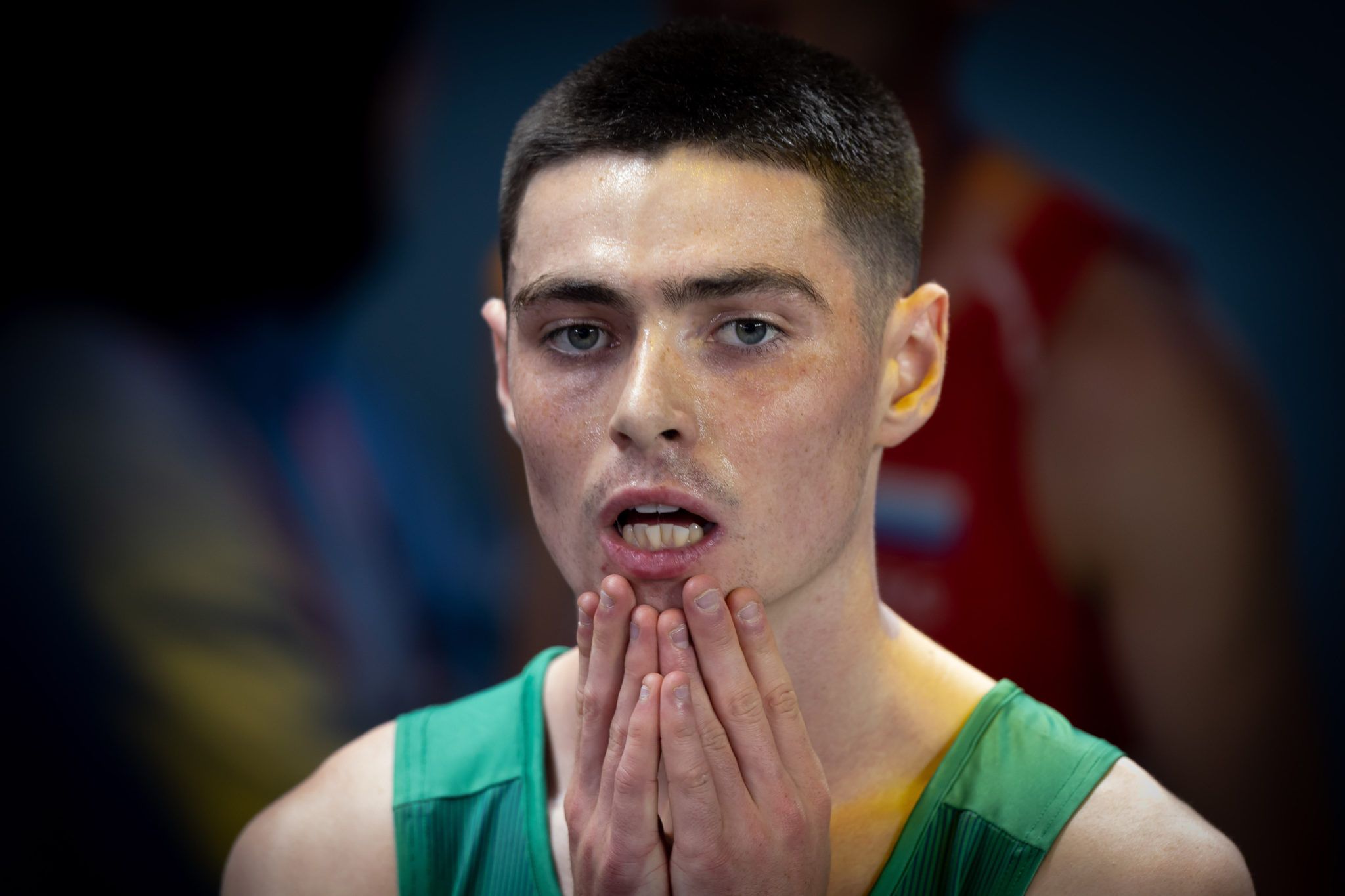 Darragh McElhinney's reaction says it all after finishing fourth in the men’s 3000m final. (Photo: Morgan Treacy/INPHO)
Darragh McElhinney's reaction says it all after finishing fourth in the men’s 3000m final. (Photo: Morgan Treacy/INPHO)
The UCD athlete ran a tactically impressive race, sitting in the pack while the incredible Norwegian, Jakob Ingebrigtsen, the class act in the field, dictated matters from the front. Ingebrigsten delivered gold, as expected, but behind him Irish eyes watched on as Darragh made up six places over the last four laps and was chasing down third-placed Bibic in that final lap.
He just missed out. By 0.69 of a second. Think about that: less than one second. Fine margins. As disappointed as Darragh was, his performance still represents a breakthrough for him – he was in medal contention in a major championship.
‘I think it is a breakthrough moment,’ Emmet Dunleavy, Darragh’s coach, told The Southern Star.
‘There has been great moments so far. The U23 European cross-country in Dublin (December 2021) was brilliant, Munich (European Athletics Championships) last summer was brilliant, but he was within a whisker of a championship medal last weekend – and they are as rare as hen’s teeth.
‘In Munich he was in contention in the last lap (of the men’s 5000m) but ultimately it didn’t play out that he was very close whereas on Sunday, with very marginal changes on how the race panned out, he could have had a medal. I would say it was a breakthrough, and what it will shift now is the mindset – he will go from saying he has an outside shot at a medal to now having a medal on his mind at European level.
‘It will change a lot of things, in terms of expectations and the pressure we put on ourselves, but also other people's expectations, now that he has been fourth at the Euros.’
It’s worth remembering that Darragh is just 22 years old. Already, he has achieved a lot, including four Irish senior titles in a row in the last 12 months across indoor, outdoor and cross-country. On Sunday he held his own in elite company. Olympic, World and European champion Ingebrigtsen is also 22, but silver medallist Adel Mechaal is 32. Bibic is 24 years old. Charles Grethen, who finished fifth, is 30.
In fact, Darragh was the youngest in the final.
‘He is still only 22,’ Dunleavy reaffirms.
‘Over the last four years, every year we have added something in. His weekly mileage is up. Typically he is hitting 95 to 100 miles a week now whereas that was 75-80 when he started in UCD four years ago, so that is a natural progression. The workouts are getting bitter and harder.
‘A lot is being consistent and to keep doing what he's doing. We'll add in little bits and pieces, like slightly more mileage. Most of all it’s about letting him mature because he is still only 22 and endurance athletes don’t peak until their late 20s.
‘Look at the age profile of the fellas last weekend, with the exception of Ingebrigtsen, most are significantly older than him. It shows he is really turning heads at European level and he’s still a young lad.’
The next step for Darragh is to improve his 3k and 5k PBs, Dunleavy explains, because he has all the attributes to win medals on the international stage.
‘Darragh missed out but was only three seconds off Mechaal who finished second, and he is a really classy performer. Ingebrigtsen, for all his class, was only four seconds ahead of him,’ Dunleavy explains.
Ingebrigtsen ran a national record when winning, while Mechaal had a season’s best. Yet Darragh was holding his own.
‘The beauty of the way Darragh has developed is that he can handle any sort of race. On Sunday it was a typical race where Ingebrigtsen is involved, he goes to the front and winds it up from a long way out, typically from a kilometre to go, and makes every lap a little quicker, and Darragh can handle that like he showed on Sunday, but he also proved he has a vicious kick over the last 200 if it is a slow-burner.’
It’s raw this week for Darragh. He knows there are no guarantees he will find himself in the same position again, in contention for a medal at a major event, but the signs suggest we will.
The best is yet to come.

